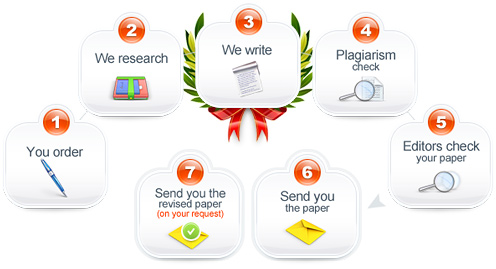Evidence-based approach to examining a wide range of cultural norms, religions, and alternative healthcare practices
Assignment Prompt: Discuss the most meaningful aspects of this course to you. Include the topics of culture, spirituality, vulnerable populations; religious diversity, and complementary, alternative, and integrative health practices. Describe how this course content will be beneficial to you in your future advanced nursing role.
Expectations
Length: Two to three pages (excluding title and reference page)
Format: APA 7th ed.
References: A minimum of two, recent, scholarly reference citations
Attached is information regarding the whole course and a link to an article you may find useful.

About this course:
Here is an article you may find useful:
https://www.nccih.nih.gov/health/complementary-alternative-or-
integrative-health-whats-in-a-name
Reflective Journal Paper Rubric
Culture and Spiritual Care Across the Lifespan
2 Credits
Prerequisites: None
Required Textbook and Readings
de Chesnay, M., & Anderson, B. (2020). Caring for the vulnerable: Perspectives in nursing
theory, practice, and research (5th Ed.). Burlington, MA: Jones & Bartlett. ISBN:
9781284146813
American Psychological Association. (2020). Publication manual of the American Psychological
Association (7th ed.). https://doi.org/10.1037/0000165-000
Course Description
This course focuses on an evidence-based approach to examining a wide range of cultural
norms, religions, and alternative healthcare practices of varied racial and ethnic groups.
Emphasis will be placed on using critical dialogue, reflection in action, and scholarship to
explore how these practices affect the design and implementation of culturally competent,
individualized health care. The value of a multicultural professional nursing workforce to assess,
plan, and manage care according to the cultural and spiritual needs of individual patients and
populations will be incorporated into dialogue and scholarship.
Course Learning Outcomes
Upon completion of the course, the student will be able to:
1. Identify and contextualize the factors that constitute their personal culture, beliefs, and
upbringing to understand how those factors influence interactions with patients and the
environment (PLO 2,3)
2. Analyze variations in cultural and religious backgrounds and practices of patients and families and their effect on compliance with treatment. (PLO 1, 2)
3. Evaluate alternative healthcare practices and how they affect the provision of patient-centered care. (PLO 6, 9)
4. Synthesize aspects of knowledge and communication principles pertinent to the
intercultural aspects and how the multicultural professional nursing workforce can
collaborate to assess, plan, and manage care according to the cultural and spiritual
needs of individual patients. (PLO 4, 5)
5. Evaluate knowledge of the impact between morals and ethics and how they direct
patient and provider choices for treatment across the lifespan. (PLO 3, 7)
6. Incorporate principles of Cultural and Spiritual care into advanced nursing practice. (PLO
8, 9 )
MSN Program Learning Outcomes
Upon completion of the Master of Science in Nursing, the student will be able to:
Goal: Literacy
1. Evaluate and apply evidence-based findings to advanced nursing roles.
2. Integrate cultural competence into advanced nursing roles.
3. Integrate the Master Essentials and specialty standards into the advanced nursing role.
Goal: Communication
1. Compose professional written communication for advanced nursing roles.
1. Speak professionally in advanced nursing roles.
1. Demonstrate the advanced nursing role through leadership, collaboration, and caring
science to improve health outcomes.
Goal: Reasoning
1. Evaluate and apply quantitative and qualitative data to validate and guide decision-making relevant to health outcomes.
1. Integrate ethical reasoning into advocacy and decision-making.
1. Objectively evaluate and synthesize information in advanced nursing roles.
Hello,
I am in a Family Nurse Practitioner Program.
Here are the instructions:
Points: 200
Grade Category: Assignments
Thank you!
(may I also have a plagiarism report?)
Evidence-based approach to examining a wide range of cultural norms, religions, and alternative healthcare practices Related posts:
- Reflective practice is an important skill that nurses need to develop. Discuss this statement and explain why, when and how reflective practice is used in nursing practice.
- Reflective Journal (nursing)
- Professional Capstone and Practicum Reflective Journal
- Benchmark-Professional Capstone and Practicum Reflective Journal
- Reflective journal – Program outcomes
- Personally reflect on your behaviors/thoughts/decisions and how those impact you in the role of PMHNP
- Self-Reflective Journal as a Psychiatric Nurse practitioner
- Reflective Journal as a psychiatric nurse practitioner
- Compare and contrast of the International Council of Nurses (ICN) Code of Ethics for Nurses and the American Nurses Association (ANA) Code of Ethics for Nurses
- Compares scope of practice of newly Registered Nurses to that of Registered Nurses (RN), Enrolled Nurses (EN), Assistants in Nursing (AIN) and other Health Care Worker (HCW) roles
- Filipino nurses view on Advanced Practice Nursing and what it takes to develop the role among nurses in the Philippines
- How Reflective Practice has contributed to a context of Nursing (Nursing in the 21st Century)
- Reflective practice in the nursing profession
- Discuss and develop a plan to include a description of moral distress. Include the American Nurses Association (ANA) code of ethics and develop at least two initiatives to address moral distress on a nursing unit
- Develop a project within a practice setting that allows you to develop these leadership skills. You will identify a problem area in a practice setting that you specifically want to address (e.g., practice, policy, population, education) that aligns with organizational priorities
- Read the section titled “Reflective Practice: Pants on Fire” from chapter “Health Policy, Politics, and Professional Ethics” and address the questions
- Get Buy-In to Make a Change in Practice
- An Ethical Dilemma And Case Study

